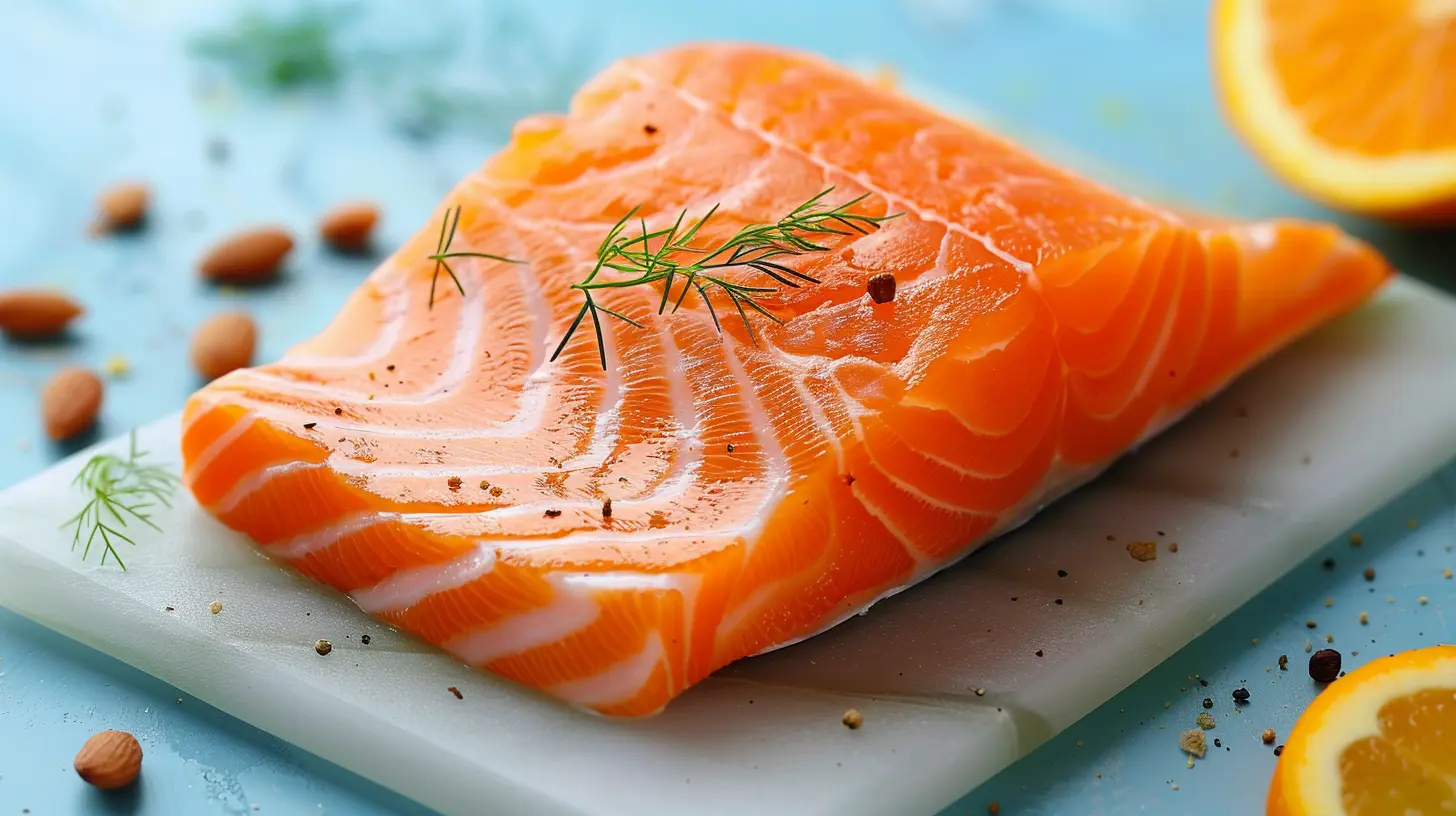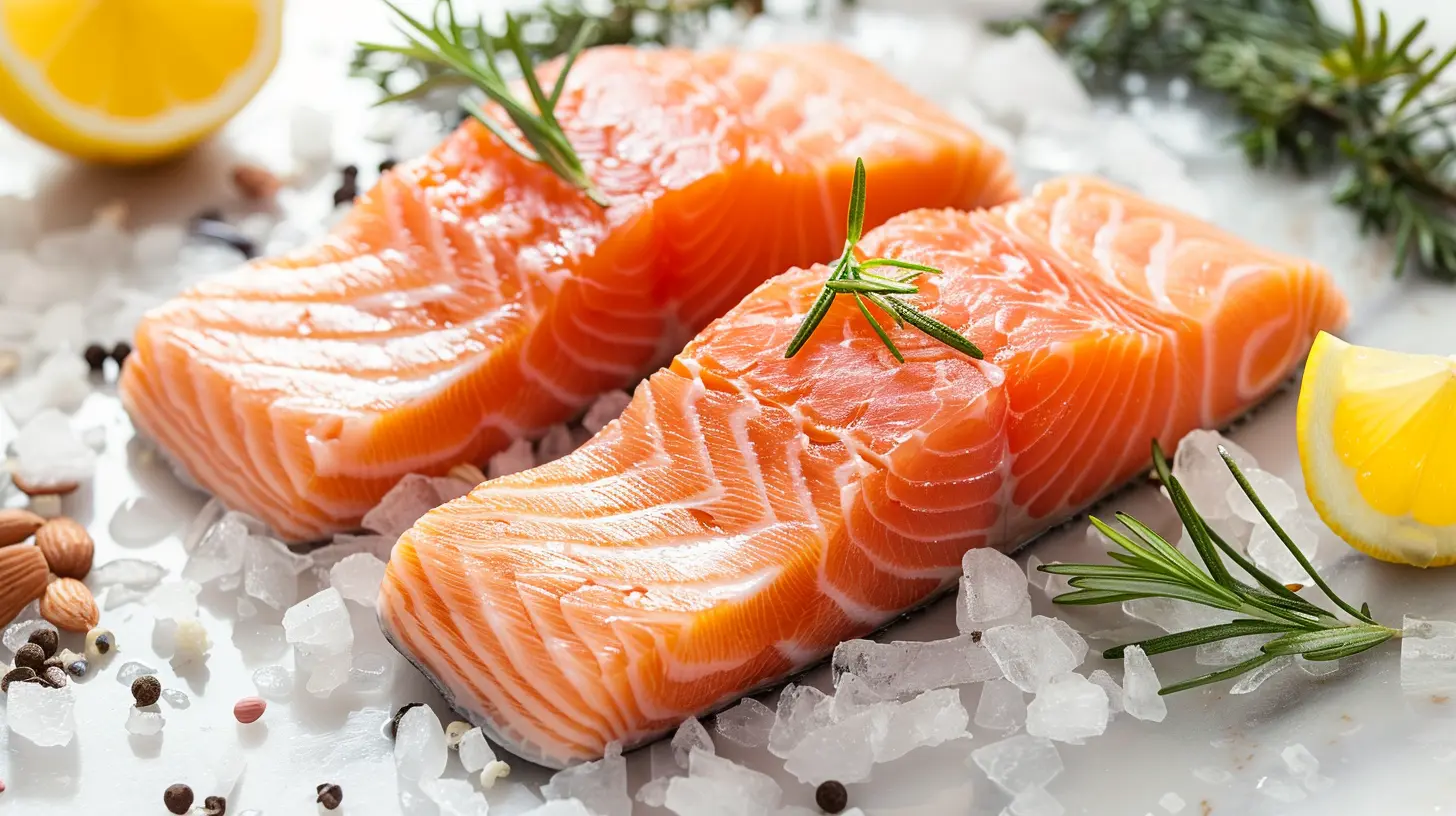Harnessing the Power of Omega-3 Fatty Acids for Brain Health
9 June 2025
Let’s cut right to it—your brain is a big deal. It's the command center of your body, pulling strings behind every move, thought, and feeling. But like any high-performing machine, it needs the right fuel. This brings us to the star of the show: Omega-3 fatty acids.
You’ve probably heard the buzz about Omega-3s, right? They’re often thrown into conversations about heart health, fish oil supplements, and memory boosters. But did you know these fatty acids are literal lifelines for your brain?
In this blog post, we’re diving deep into how Omega-3s influence the brain, why they're essential, and how you can make sure you’re getting enough to keep your mental gears turning smoothly.
What Are Omega-3 Fatty Acids Anyway?
Okay, quick science moment—but I promise it won’t feel like a lecture.Omega-3 fatty acids are polyunsaturated fats, aka “healthy fats.” They come in three main types:
1. ALA (Alpha-linolenic acid): Mostly found in plant oils like flaxseed, chia seeds, and walnuts.
2. EPA (Eicosapentaenoic acid) and DHA (Docosahexaenoic acid): These come from marine sources like fish oil and are the MVPs when it comes to brain health.
Your body can convert a bit of ALA into EPA and DHA, but let’s be real—it's not that efficient. That’s why getting EPA and DHA directly from food or supplements is the better play here.
Why the Brain Loves Omega-3s
You might be surprised to learn that about 60% of your brain is fat. And a big slice of that (especially in the gray matter) is DHA. It's like building a house—you wouldn't use cardboard where you need bricks, right? DHA is a structural superhero for your brain cells.But that’s not all.
- Omega-3s fight inflammation. Chronic inflammation in the brain? That’s tied to everything from depression to Alzheimer’s.
- They improve communication between neurons. Think of it like upgrading your brain's Wi-Fi.
- They protect against cognitive decline. Yep, they help keep your memory sharp and your thinking clear as you age.
In short: Omega-3s are like brain fertilizer. They keep the soil rich, the growth steady, and the weeds away.
Omega-3s and Memory: Can Fish Oil Help You Remember Your Keys?
Ever walked into a room and completely forgotten why you went in there? We’ve all been there. Memory lapses can be frustrating, especially as we get older.Here’s where Omega-3s step in. Numerous studies have shown that people who consume more DHA and EPA score better on memory and learning tests. And it’s not just the older folks—young adults and even children benefit, too.
One long-term study even found that seniors who took Omega-3 supplements had less brain shrinkage compared to those who didn’t. Brain shrinkage isn’t something you want associated with aging, trust me.
Mood Boosting Magic: Omega-3s and Mental Health
Let’s talk feelings. If you’ve ever struggled with anxiety, depression, or mood swings, Omega-3s might be your brain's best friend.EPA, especially, has been linked to improved mood and reduced symptoms in people with depression. Some research even suggests it could enhance the effectiveness of antidepressant medications.
How? Scientists believe these fats help regulate neurotransmitters like serotonin and dopamine—basically the brain's “feel-good” chemicals. Omega-3s also help calm inflammation, which is often higher in people with mood disorders.
So while they’re not a replacement for therapy or medication, Omega-3s might just be an extra layer of support in your mental health toolkit.
Omega-3s Across the Lifespan: From Cradle to Cane
Babies and Brain Development
Let’s start at the beginning—literally. DHA is crucial for fetal brain and eye development. That’s why pregnant women are often encouraged to take prenatal vitamins with added Omega-3s.Studies show that babies born to mothers with higher Omega-3 intake score better on cognitive and motor development tests. It’s the ultimate head start.
Kids and Focus
Kids today are swimming in distractions—screens, sugar, overstimulation. Some evidence suggests Omega-3s can help improve attention span and reduce symptoms in kids with ADHD. Researchers believe these fatty acids help regulate dopamine levels and enhance neuronal signaling.Adults and Brain Power
Work stress, decision fatigue, digital burnout—it’s real. But adults who keep up their Omega-3 intake often report better focus, sharper memory, and a more stable mood. It's like giving your brain a tune-up.Seniors and Cognitive Protection
Aging gracefully isn’t just about wrinkle creams and joint supplements. It’s about keeping your mind sharp. Multiple studies show Omega-3s can slow cognitive decline and may reduce the risk of Alzheimer’s disease. When it comes to long-term brain protection, these fats are your best bet.How Much Omega-3 Do You Really Need?
There’s no one-size-fits-all answer, but general guidelines recommend:- 250–500 mg of combined EPA and DHA daily for healthy adults.
- 1,000 mg or more may be suggested for individuals with specific health issues (always consult your doctor first!).
Pregnant and breastfeeding women usually need at least 200 mg DHA per day.
The key is consistency. Taking a supplement once and expecting results is like watering a plant once and wondering why it’s wilting a week later.
Best Food Sources of Omega-3s That Your Brain Will Love
Let’s be honest—popping a supplement is easy, but nothing beats getting your nutrients from real food. Here are some brain-boosting options:Fatty Fish (Rich in EPA and DHA)
- Salmon- Mackerel
- Sardines
- Anchovies
- Herring
- Tuna (go for sustainable sources)
Aim for at least two servings of fatty fish per week.
Plant-Based Sources (ALA)
- Flaxseeds (ground is best)- Chia seeds
- Walnuts
- Hemp seeds
- Brussels sprouts
- Algal oil (a great vegan DHA source)
Just remember, if you’re relying on ALA alone, your body won’t make much DHA/EPA—so supplementing might still be necessary.
The Supplement Scoop: Do You Need One?
If your diet isn't supplying enough Omega-3s—and let’s be honest, most Western diets fall short—a supplement can fill the gap.You’ve got options:
- Fish oil capsules: The OG option, packed with EPA and DHA.
- Krill oil: Smaller dosage, but good bioavailability.
- Algal oil: Vegan-friendly and rich in DHA.
- Cod liver oil: Also a good source of vitamin D and A, but use cautiously due to high vitamin levels.
Look for third-party tested brands that guarantee purity and free of heavy metals. Nobody wants mercury with their Omega-3s.
Can You Take Too Much?
Yes, and no.For most people, Omega-3s are safe—even in higher amounts. But at doses over 3,000 mg per day, they can act as blood thinners and may interfere with some medications. If you're on blood pressure or anticoagulant meds, check with your doctor first.
Balance is everything. It’s not about drowning your body in fish oil—it’s about finding your “just right” Goldilocks dose.
Omega-3s and Lifestyle: Better Together
While Omega-3s on their own are powerful, they work way better when paired with a healthy lifestyle. That means:👣 Walking more
🥗 Eating whole foods
🛌 Getting good sleep
🧘♀️ Managing stress
🧠 Staying mentally active
Think of Omega-3s as a team player. They’re not the whole game, but they can definitely be the MVP when the rest of your lifestyle aligns.
Final Thoughts: Small Change, Big Brain Wins
It’s wild to think that something as tiny as a fatty acid can have such a massive impact on brain health. But that’s the magic of Omega-3s.They’re easy to include in your diet, widely available, and backed by solid science. Whether you’re navigating toddler tantrums, work burnout, or senior moments, these fats have your back… well, your brain.
So maybe it’s time to look at your daily plate (or your supplement shelf) and ask—“Am I feeding my brain what it really needs?”
Your neurons will thank you.
all images in this post were generated using AI tools
Category:
NutritionAuthor:

Eileen Wood
Discussion
rate this article
2 comments
Fleur Bryant
Excited to learn how Omega-3 can boost brain health—such fascinating potential!
June 15, 2025 at 3:24 AM

Eileen Wood
Thank you! I'm glad you find it fascinating—Omega-3s truly have incredible benefits for brain health!
Keira Barlow
Essential for vibrant minds!
June 13, 2025 at 2:43 AM

Eileen Wood
Thank you! Omega-3s truly play a crucial role in maintaining cognitive vitality.


